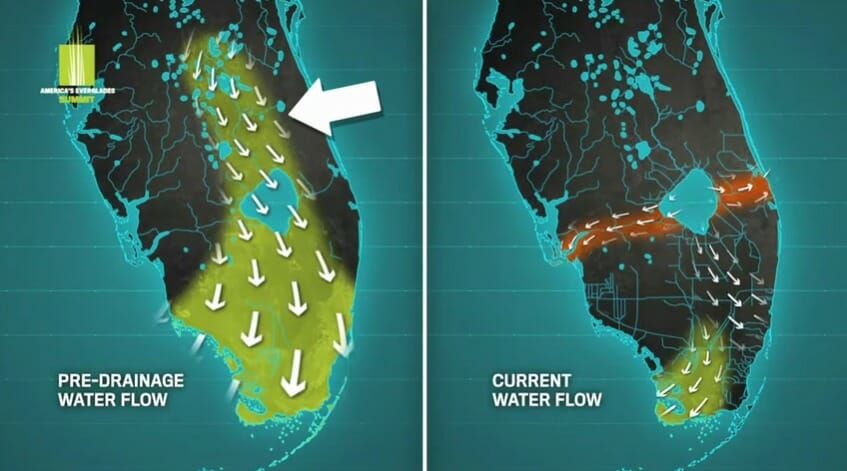No, southern Florida isn’t a trout fishery (at least not of the salmonid variety). But we’re all connected by water, and the Everglades might be the best living laboratory in the country that explains the virtues of water, not just to people, but to every living thing.
Our friends at Orvis took to the Everglades and crafted a short and hopeful film that shows that, as bad as things have gotten for the Everglades and Florida Bay, the solutions to challenges facing the Everglades are well-known. And for the first time in generations, the solutions are starting to get some political play in the Sunshine State.
Technically, the headwaters of the Everglades begin just south of Orlando. Before man-made manipulation in the name of flood control and agricultural irrigation, rainwater would flow south through a chain of pothole lakes lining central Florida and it would eventually spill over the southern rim of Lake Okeechobee and flow as a giant “sheet” of fresh water through a massive natural filter of grass and peat. That clean, clear water would then end up in Florida Bay, one of the most-prized fisheries on earth.
But we altered the flow of fresh water, constructed the Tamiami Trail across the glades and choked off the source of clean water for Florida Bay. The U.S. Army Corps of Engineers diverted heavily polluted agricultural runoff water from Lake Okechobee east and west, into rivers that run into the Gulf of Mexico and the Atlantic. The results, when combined with a changing climate, have been devastating for coastal estuaries on both Florida coasts. We couldn’t have dreamed up a better way to trash Florida’s famed fisheries.
Of late, these mistakes have come home to roost. Giant blooms of toxic red tide appear almost every year along coastal Florida. Fish die. Manatees die. The water is unsafe for humans–even its toxic fumes can induce illness. And, all the while, Florida Bay is starved a fresh water.
But, as the Orvis film notes, there’s hope. Lawmakers are listening. Plans are finally translating to action. Saving the Everglades (and the estuaries on both coasts) is no longer a lost cause.
Florida was once an angling paradise, and can be again, if we can muster the political will to stay the course.
And if we can save the Everglades, no challenge seems too great.



